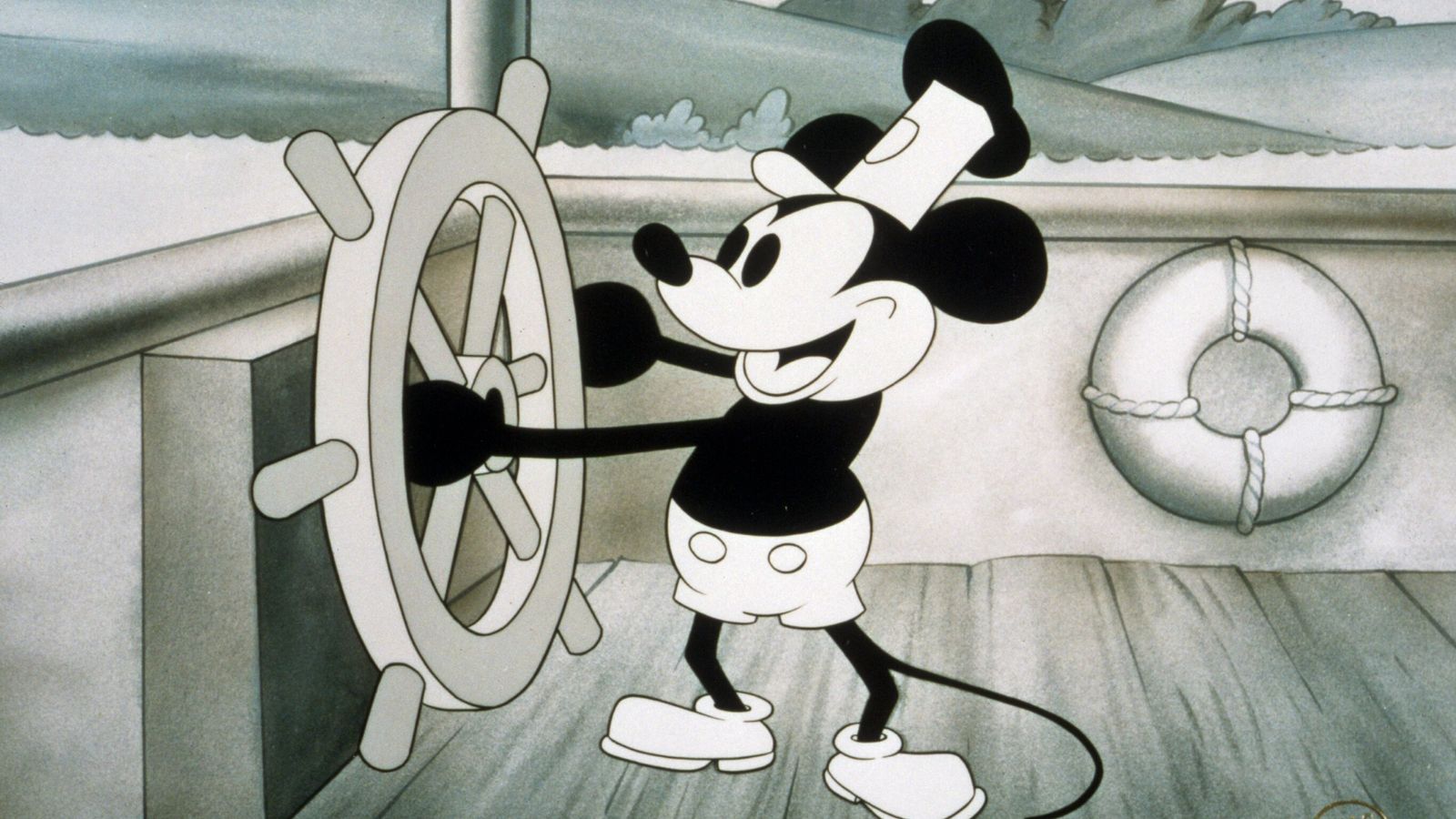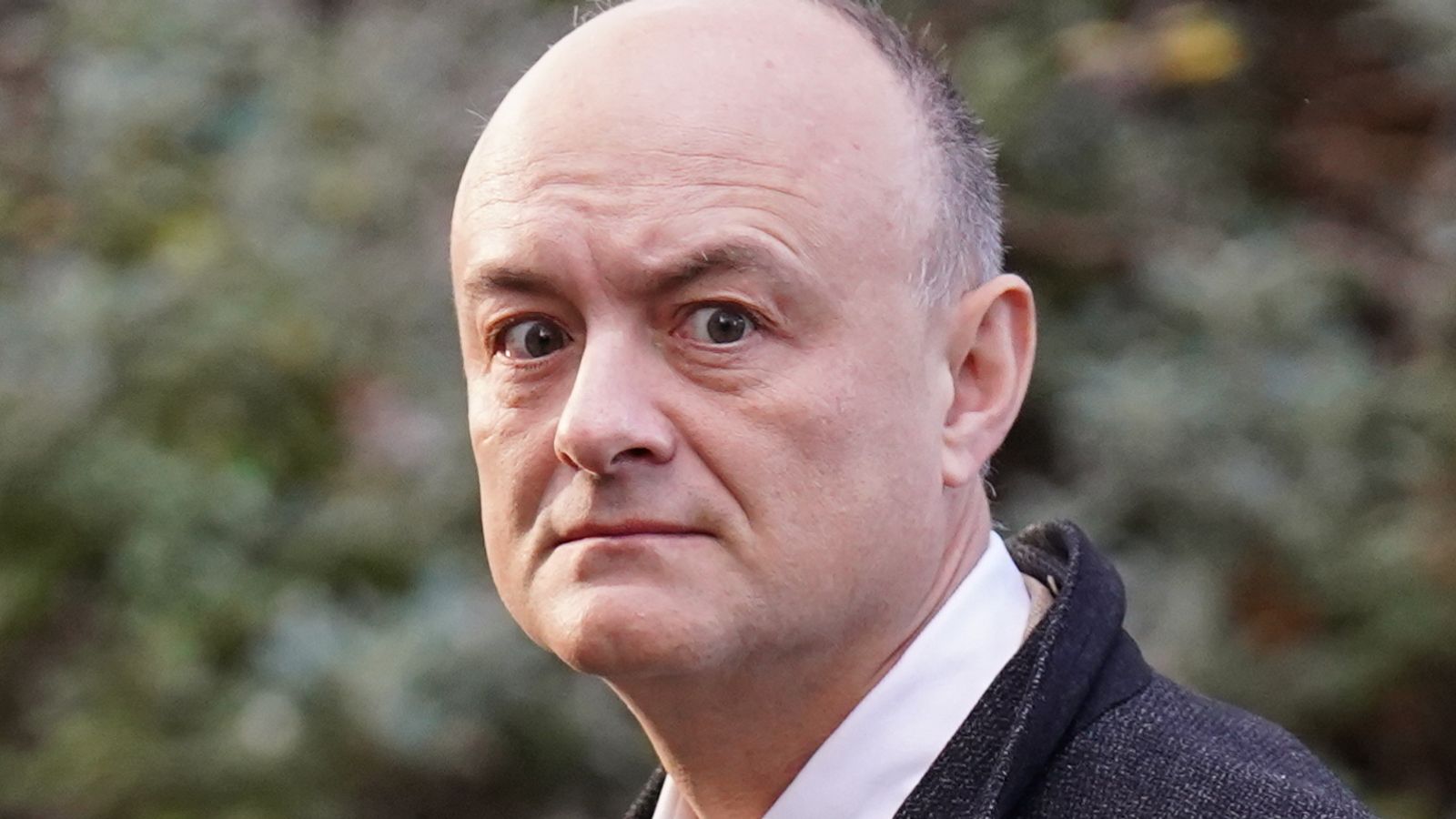An early version of Mickey Mouse, one of the most iconic characters in popular culture, will no longer have copyright protection from 2024.
Members of the public will be able to use the image of Mickey and Minnie Mouse featured in their first screen release, the 1928 short film Steamboat Willie, after the copyright expires.
US law allows copyright to be held for 95 years – with Congress expanding it several times during that period.
“It’s sometimes derisively referred to as the Mickey Mouse Protection Act,” Jennifer Jenkins, a professor of law and director of Duke’s Center for the Study of the Public Domain said.
“That’s oversimplified because it wasn’t just Disney that was pushing for term extension. It was a whole group of copyright holders whose works were set to go into the public domain soon, who benefited greatly from the 20 years of extra protection.”
Ms Jenkins said the change was “exciting” and “symbolic”.
She said: “This is it. This is Mickey Mouse… I kind of feel like the pipe on the steamboat, like expelling smoke. It’s so exciting.”
The change means the public will only be able to use the more mischievous, rat-like, non-speaking boat captain seen in Steamboat Willie – not the more modern versions.
A spokesperson for Disney said: “Ever since Mickey Mouse’s first appearance, people have associated the character with Disney’s stories, experiences, and authentic products. That will not change when the copyright in the Steamboat Willie film expires.
“More modern versions of Mickey will remain unaffected by the expiration of the Steamboat Willie copyright, and Mickey will continue to play a leading role as a global ambassador for the Walt Disney Company in our storytelling, theme park attractions, and merchandise.
“We will, of course, continue to protect our rights in the more modern versions of Mickey Mouse and other works that remain subject to copyright.”
Not every feature or personality trait a character displays is necessarily copyrightable, however, courts could be busy in the coming years determining what is inside and outside Disney’s ownership.
Disney also holds a separate trademark on Mickey as a corporate mascot and brand identifier, and the law forbids using the character deceptively to fool consumers into thinking a product is from the original creator.
Steamboat Willie was directed by Walt Disney and his partner Ub Iwerks and was one of the first cartoons to have sound synced with its visuals.
It was the third cartoon made by Disney and Iwerks featuring Mickey and Minnie but the first to be released.
It features a more menacing Mickey captaining a boat and making musical instruments out of other animals.
Other properties entering the US public domain in 2024 are Charlie Chaplin’s film Circus, Virginia Woolf’s novel Orlando and Bertolt Brecht’s musical play The Threepenny Opera.
The current copyright term passed in 1998 brought the US into closer sync with the European Union, making it unlikely Congress would extend it now.
Read more from Sky News:
The Full Monty actor Tom Wilkinson dies
Tupac trial witnesses ‘may be at risk of kill order’
Trump says he is behind Home Alone 2’s success
Be the first to get Breaking News
Install the Sky News app for free
Powerful companies, including Amazon with its fan-fiction-heavy publishing arm and Google with its books project, have been keen advocates for releasing properties into the public domain.
Mickey Mouse follows another childhood favourite Winnie the Pooh, which entered the public domain two years ago, resulting in the horror film Winnie The Pooh: Blood and Honey.
Disney is also set to lose its copyright of Winnie’s beloved sidekick Tigger who first appeared in the book The House at Pooh Corner 96 years ago.








